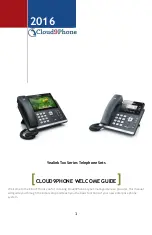
40
41
• Do not store the phone in cold areas. When the phone
warms up to its normal operating temperature, moisture
can form inside the phone, which may damage the
phone’s electronic circuit boards.
• Do not drop, knock or shake the phone. Rough handling
can break internal circuit boards.
• Do not use harsh chemicals, cleaning solvents or strong
detergents to clean the phone. Wipe it with a soft cloth
slightly dampened in a mild soap-and-water solution.
• Do not paint the phone. Paint can clog the device’s
moving parts and prevent proper operation.
• Do not put the phone in or on heating devices, such as
a microwave oven, a stove or a radiator. The phone may
explode when overheated.
• When the phone or battery gets wet, the label indicating
water damage inside the phone changes color. In this
case, phone repairs are no longer guaranteed by the
manufacturer’s warranty, even if the warranty for your
phone has not expired.
• If your phone has a flash or light, do not use it too close
to the eyes of people or animals. This may cause damage
to their eyes.
• Use only the supplied or an approved replacement
antenna. Unauthorized antennas or modified accessories
may damage the phone and violate regulations
governing radio devices.
• If the phone, battery, charger or any accessory is not
working properly, take it to your nearest qualified
service facility. The personnel there will assist you, and if
necessary, arrange for service.
Health and safety information
SAR certification information
This phone meets European Union (EU) requirements
concerning exposure to radio waves.
Your mobile phone is a radio transmitter and receiver.
It is designed and manufactured to not exceed the
limits for exposure to radio-frequency (RF) energy, as
recommended by the EU Council. These limits are part of
comprehensive guidelines and establish permitted levels
of RF energy for the general population. The guidelines
were developed by independent scientific organisations
through the periodic and thorough evaluation of
scientific studies. The limits include a substantial safety
margin designed to ensure the safety of all persons,
regardless of age and health.
The exposure standard for mobile phones employs a
unit of measurement known as Specific Absorption Rate
(SAR). The SAR limit recommended by the EU Council is
2.0 W/kg.
The highest SAR value for this model phone was
0.
45
W/Kg.
SAR tests are conducted using standard operating
positions with the phone transmitting at its highest
certified power level in all tested frequency bands.
Although the SAR is determined at the highest certified
power level, the actual SAR level of the phone while
operating can be well below the maximum value. This
is because the phone is designed to operate at multiple
power levels so as to use only the power required to
reach the network. In general, the closer you are to a base
station, the lower the power output of the phone.
Before a new model phone is available for sale to the
public, compliance with the European R&TTE Directive
must be shown. This directive includes as one of its
essential requirements the protection of the health and
safety of the user and any other person.
The SAR limit for mobile phones used by the public is 2.0 watts/kilogram (W/kg) averaged over ten grams of body tissue. The limit incorporates
a substantial margin of safety to give additional protection for the public and to account for any variations in measurements. The SAR values
may vary, depending on national reporting requirements and the network band.





































